This website uses cookies so that we can provide you with the best user experience possible. Cookie information is stored in your browser and performs functions such as recognising you when you return to our website and helping our team to understand which sections of the website you find most interesting and useful.
Main theses from the Lviv Municipal Partnership Forum
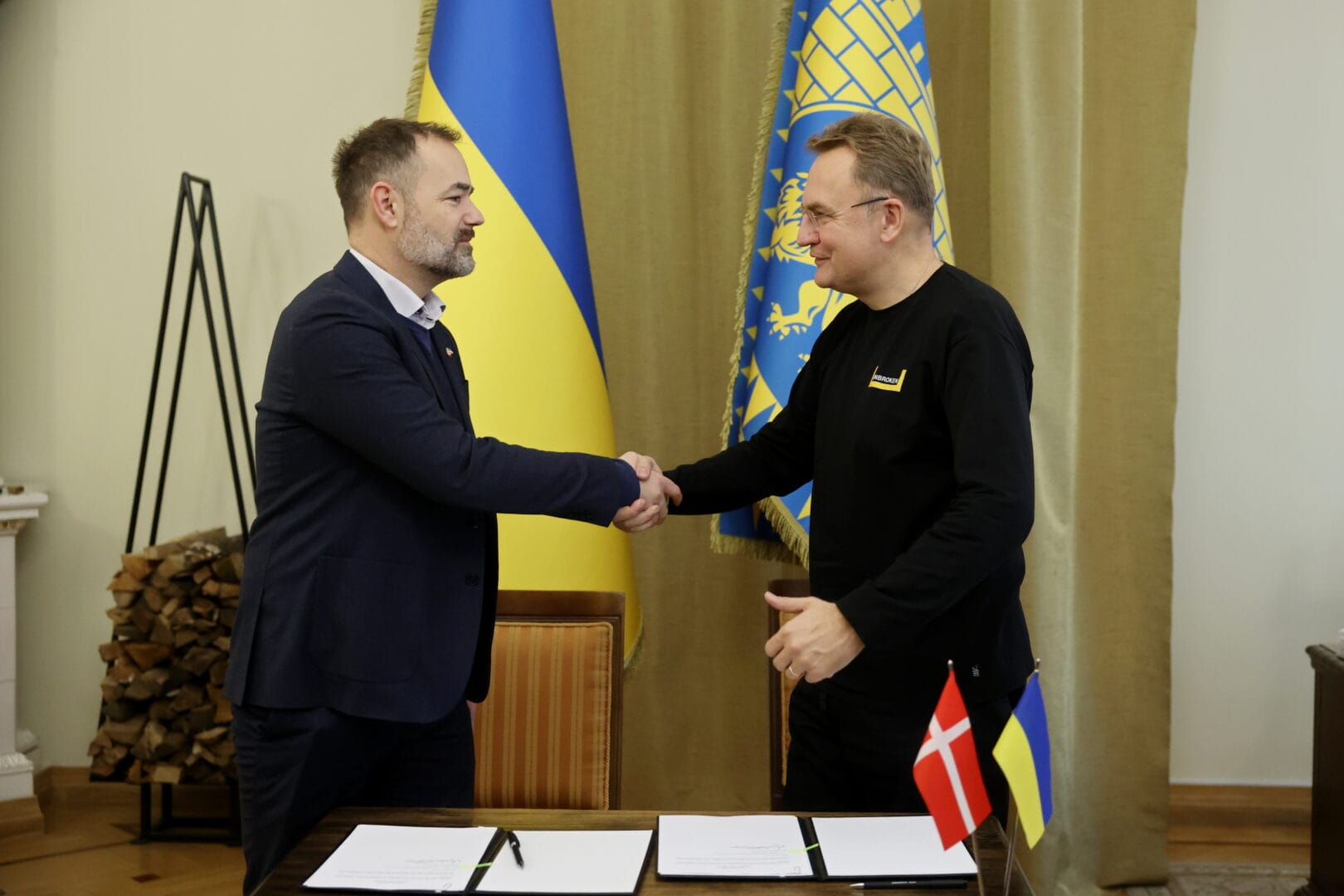
This is the final event of Cities4Cities | United4Ukraine, dedicated to the establishment of EU-Ukraine municipal partnerships. The event was held for the first time and brought together more than 200 participants – representatives of twin cities from 45 Ukrainian communities and 11 European countries. The key topics included public diplomacy of Ukrainian cities in times of war, community participation in European programs and projects, cooperation between the government, parliament, and communities in the process of European integration, and the experience of European communities in Ukraine’s European integration.
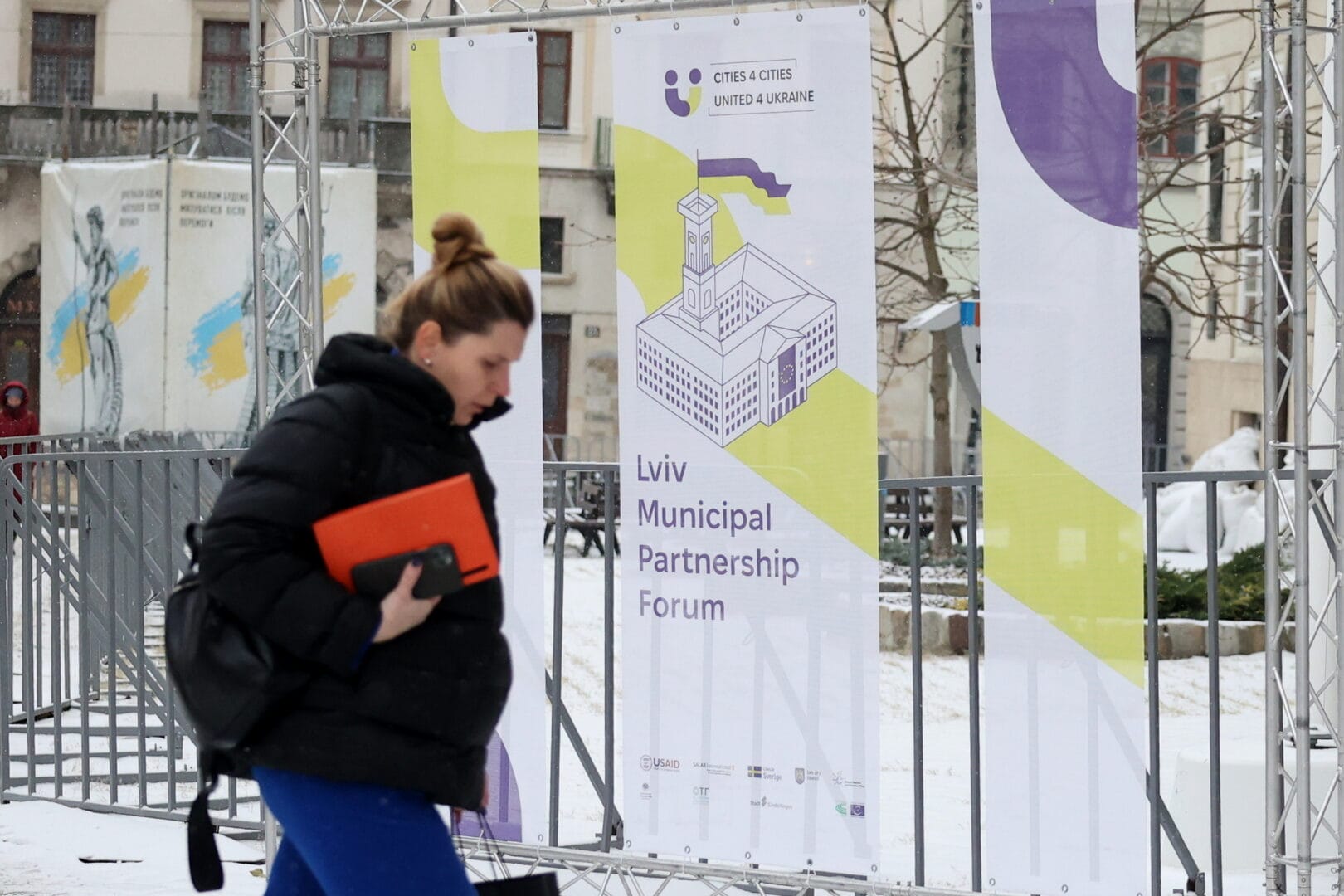
The Cities4Cities | United4Ukraine initiative is holding the forum for the first time this year, but the organizers say it will become an annual event.
“We are establishing EU-Ukraine municipal partnerships to strengthen European integration and post-war reconstruction of Ukraine. The Cities4Cities | United4Ukraine initiative has managed to establish 36 active partnerships between Ukrainian communities and cities from six European countries in just a year and a half of operation: Germany, Sweden, Poland, France, and Italy,” said Svitlana Kryzhanivska-Blinova, coordinator of the Cities4Cities | United4Ukraine initiative.
“Municipal partnerships can be created on a short-term basis, but they can also have a long-term future. For example, after the collapse of the Soviet Union, Swedish, Nordic and Danish municipalities began to establish partnerships with the Baltic states, and again, we see that many of these partnerships are still living a full life,” Magnus Lillestrøm, advisor to the initiative and expert at SALAR International, shared his experience.
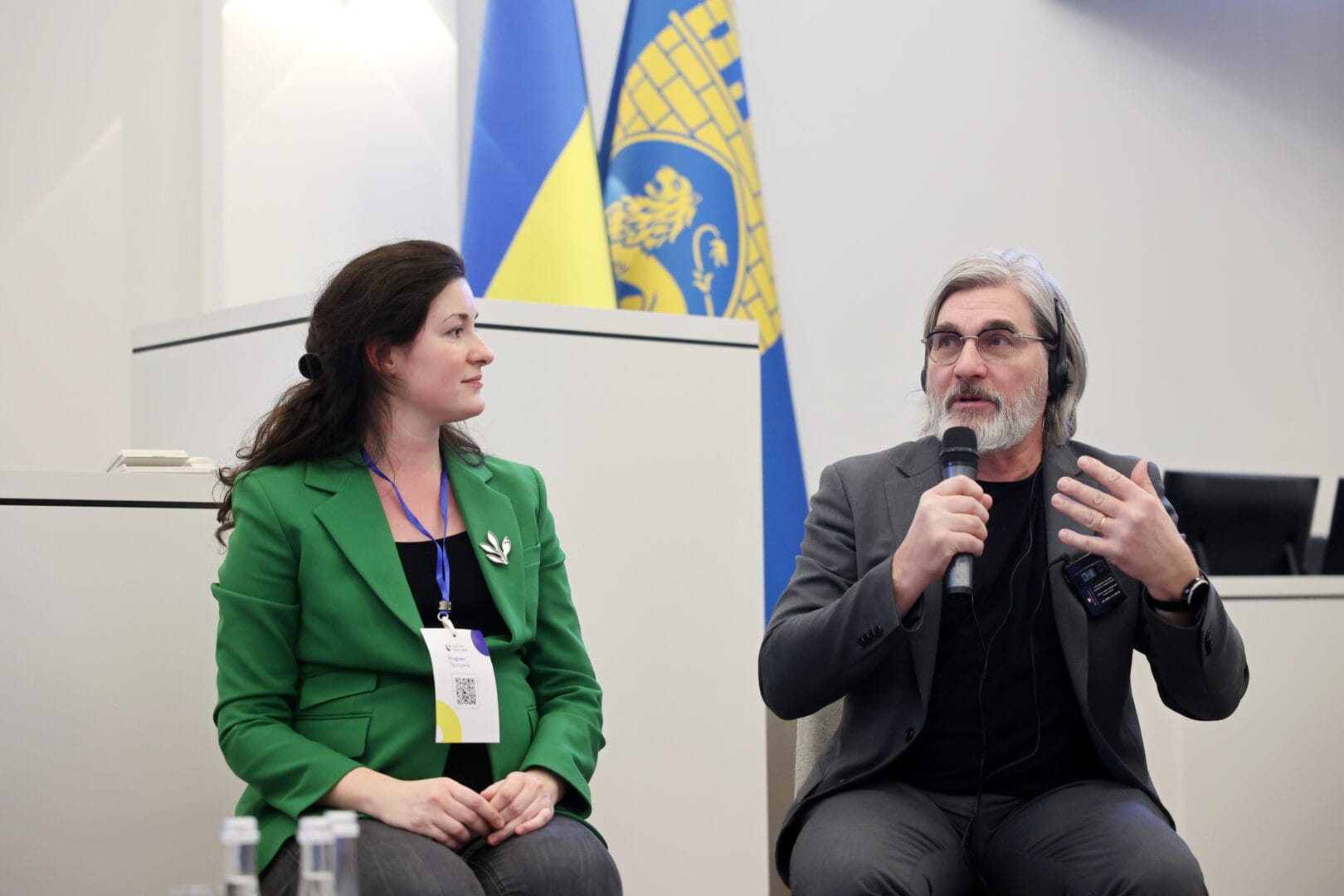
“Without the success of communities, a country cannot be a successful member of the European Union,” said Normunds Poppens, Deputy Director of DG Regio, the European Commission’s department responsible for urban and regional policy. It is this institution that will play a key role in Ukraine’s European integration at the local level.
“We want to make sure that regional development management is in line with our principles. In particular, it is important for us that projects promote the maximum involvement of all stakeholders in solving local development problems,” said Normunds Poppens.
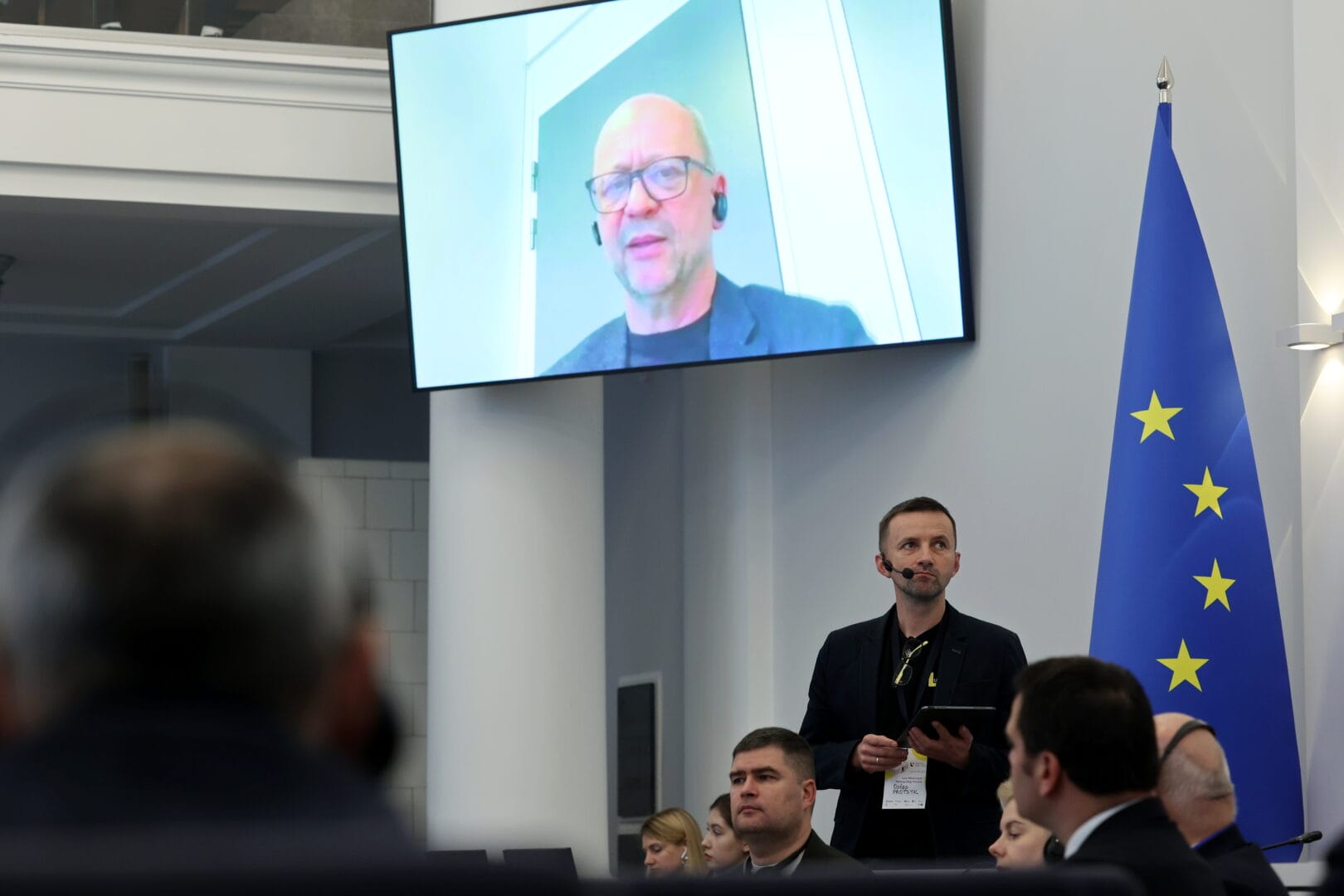
In particular, during the panel discussion on public diplomacy of Ukrainian communities in times of war, it was noted that partnerships are a key tool in strengthening international cooperation and in the fight for freedom.
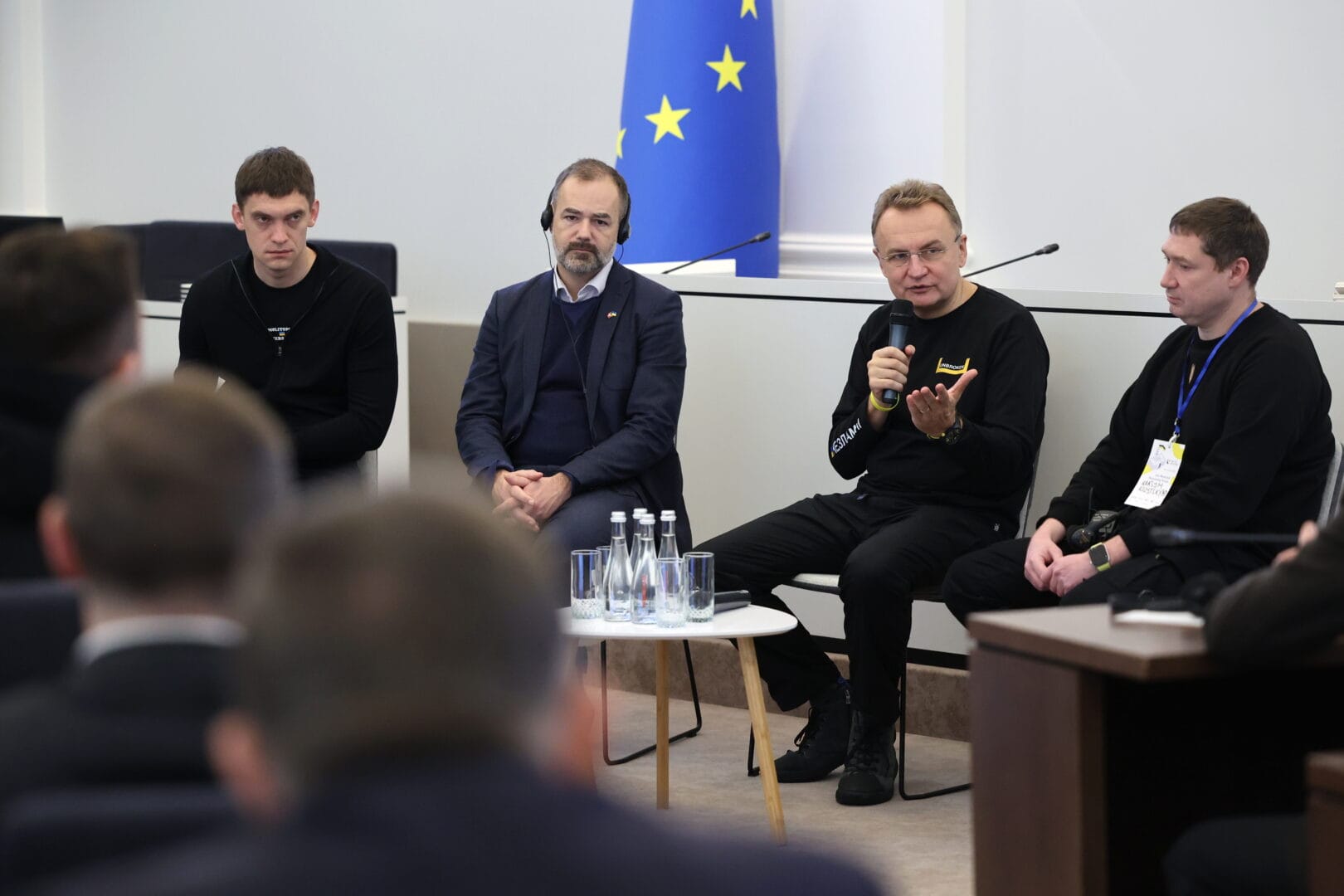
“Today, by working with cities that are leaders in their countries, we can quickly learn from their experience. Two weeks ago, we signed a joint declaration of partnership in building UNBROKEN with the mayor of Liverpool, Manchester, the mayor of Aarhus has joined us, and there will be others. We are sharing all this experience with Ukrainian communities that come here and this partnership is here,” said Andriy Sadovyi.
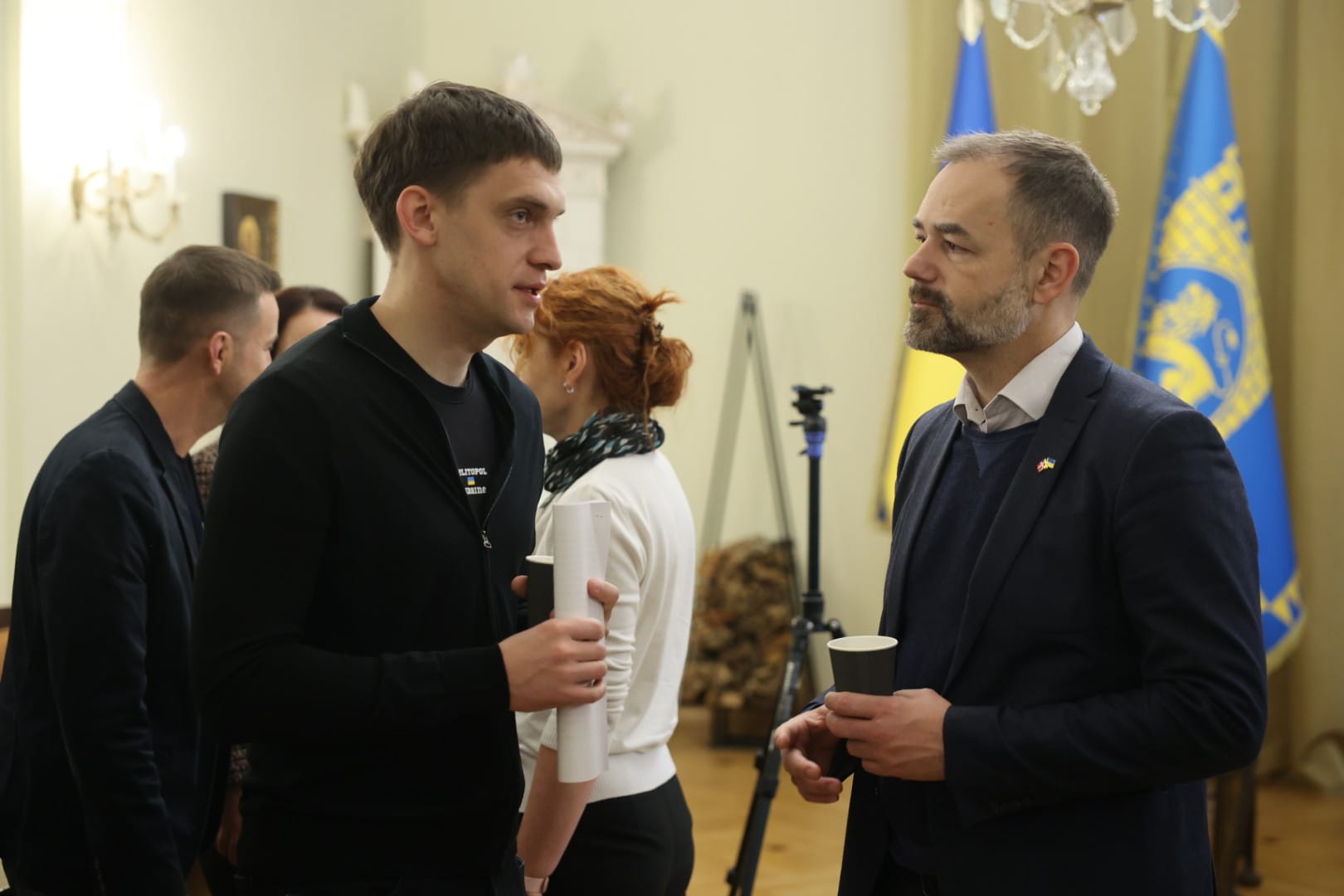
“The city of Aarhus, as well as its residents and people from all over Denmark, feel an urgent need to help Ukrainians in any way possible. A country that is under siege and experiencing Russian aggression is something that should concern each of us. We must help Ukraine. And also look to the future, when Ukraine will be free again and will be able to build an even better country, even better communities of cities,” said Jakob Bundsgaard, Mayor of Aarhus.
During the forum, representatives of the twin cities shared valuable stories of their partnership, revealing unique aspects of cooperation and mutual understanding between their communities. In particular, on the eve of the event, Bogdan Kelichavyi, Mayor of Kopychyntsi, invited Pierfrancesca Munari, Mayor of the Italian sister city of Cavarzere, to the community. They signed a partnership agreement in September of this year.
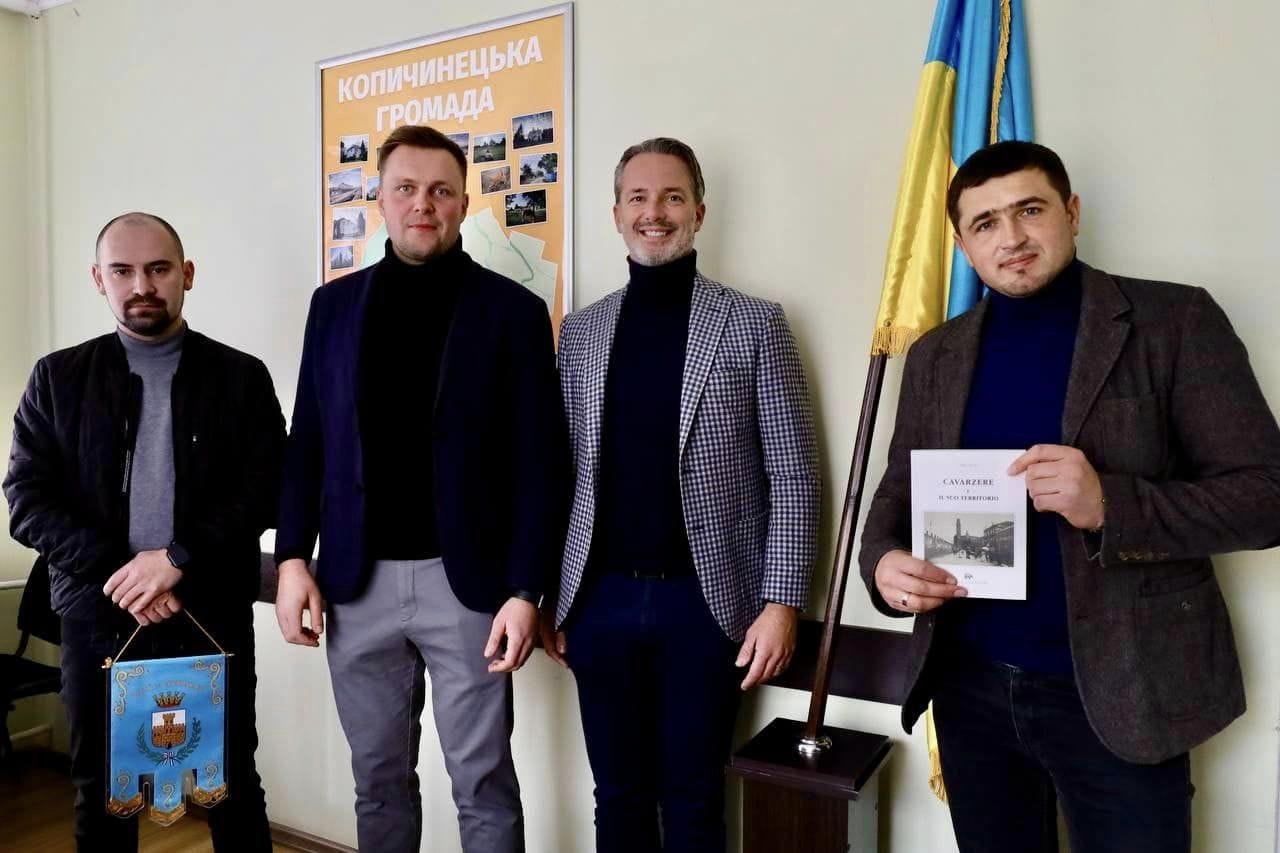
The forum also served as a platform for government officials to present legislative and managerial developments that should help municipalities establish faster and more effective international partnerships.
Rostyslav Tomenchuk, Director of the Department for Coordination of International Technical Assistance at the Secretariat of the Cabinet of Ministers of Ukraine:
“Three quick tips. First, hiring project managers is the key to the successful completion of international projects. Secondly, be clear about land ownership, because investors may not have anything left. Thirdly, remember the importance of trust and a promising view of the future. Involve European cities, do not hesitate to ask them and interact with them.”
Vitaliy Bezgin, Member of the Parliament of Ukraine, Member of the Committee on Organization of State Power, Local Self-Government, Regional Development and Urban Planning:
“Our resilience is the merit of the Armed Forces and local governments. Cooperation with the EU almost entirely takes place at the level of municipalities and regions. Now we have a situation where cities are in different conditions: from population outflow in some communities to recovery in others. I believe that it is important for our committee that communities set us tasks. We need to build a reward policy for those who develop partnerships and attract resources.”
Oleksandr Aliksiychuk, Member of the Parliament of Ukraine, Member of the Committee on Organization of State Power, Local Self-Government, Regional Development and Urban Planning:
“We are speaking today with confidence that we will start the EU accession procedure, and we have to prepare the entire legislative framework to ensure that it is fully synchronized with EU legislation even before accession. For this purpose, my colleagues and I prepared draft law No. 9450. It expands the powers of local governments at both the community and regional levels.”
Artem Gusak, Advisor to the Deputy Head of the Office of the President of Ukraine:
“We should focus not only on international partnerships, but also on domestic ones. We already have examples of Lviv cooperating with communities from the frontline regions in trilateral partnerships. We have the example of the “Side by Side” initiative, which brings together our communities and regions to rebuild the most affected regions of Ukraine. This is an amazing example of community mutual creation and support. Together we are developing the concept of both external and internal patronage for recovery and development.”
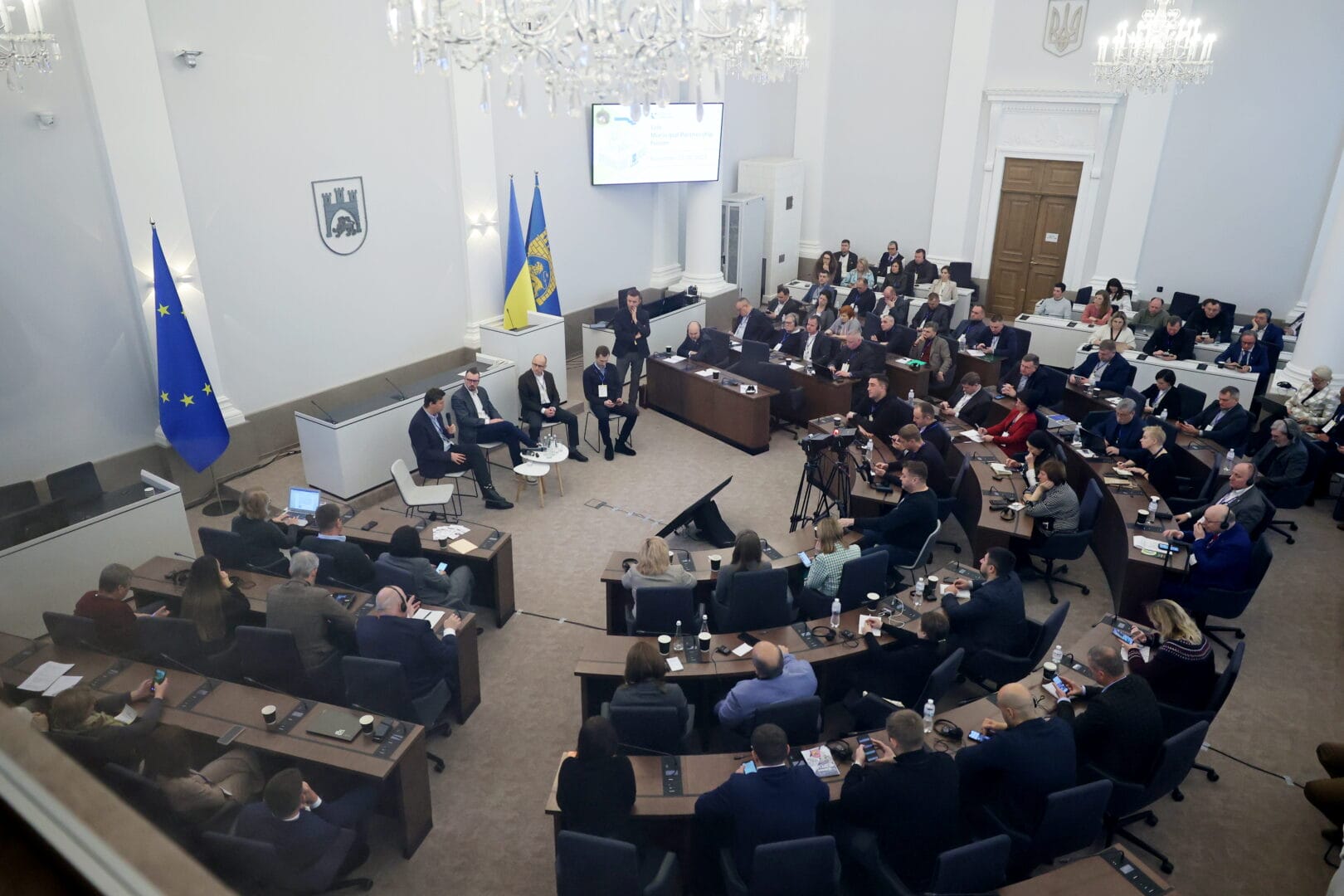
What are the initiative’s plans for the next year?
In the future, the Cities4Cities | United4Ukraine initiative plans to
- Deepen the expertise of communities in establishing international cooperation and project management
- Expanding the geography of Ukrainian community partnerships to new countries and continents will be an important strategic step in 2024
- To do this, we will help municipalities create even more English-language portfolios on the cities4cities.eu portal, which are a business card for more effective acquaintance with partners
- Cities4Cities | United4Ukraine will continue to hold residences of ideas on important topics for local governments, during which city managers will learn about the best practices of Lviv. The Lviv Urban Forum is becoming a key event that will also become an annual event.
Follow the news and events of Cities4Cities | United4Ukraine here.
Photo by: Roman Baluk
__
The Lviv Municipal Partnership Forum is an annual event of the Cities 4 Cities | United 4 Ukraine initiative, which aims to promote the idea of inter-municipal partnerships between municipalities in Ukraine and the EU by sharing best practices, strengthening cooperation, opening opportunities and coordinating efforts between national, international and local players for the rapid recovery from the Russian war and Ukraine’s European integration at the local level.
The forum is supported by the USAID Ukraine Confidence Building Initiative (UCBI) and the Support to Decentralization in Ukraine project of the Swedish Association of Local and Regional Authorities (SALAR International).
